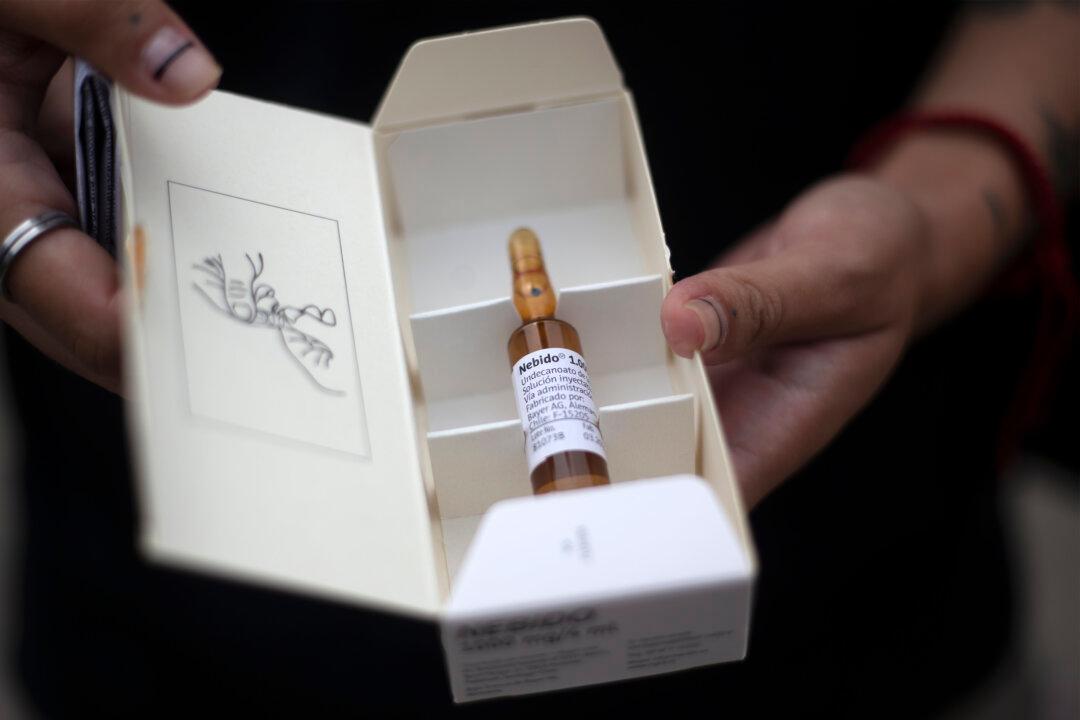The 6th U.S. Circuit Court of Appeals in Cincinnati ruled 2-1 on Monday that Kentucky’s ban on minor access for cross-sex procedures, like administering puberty blockers and cross-sex hormones, can continue.

A transgender individual shows a testosterone ampoule at a hospital in Santiago, Chile, on Jan. 8, 2020. Claudio Reyes/AFP via Getty Images




